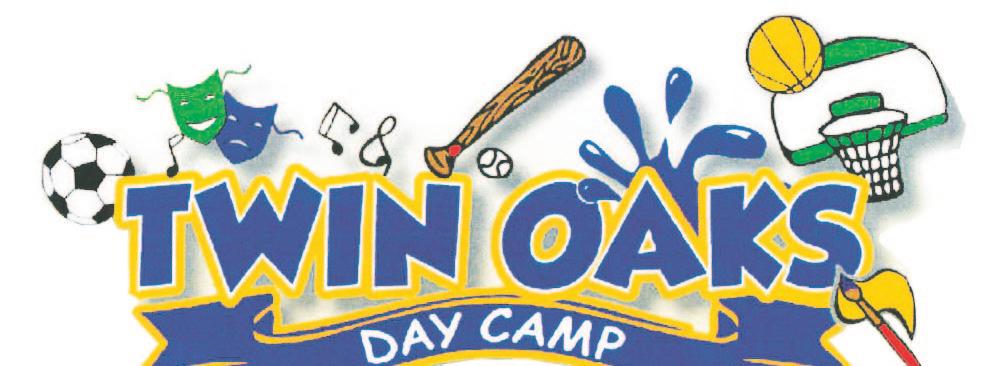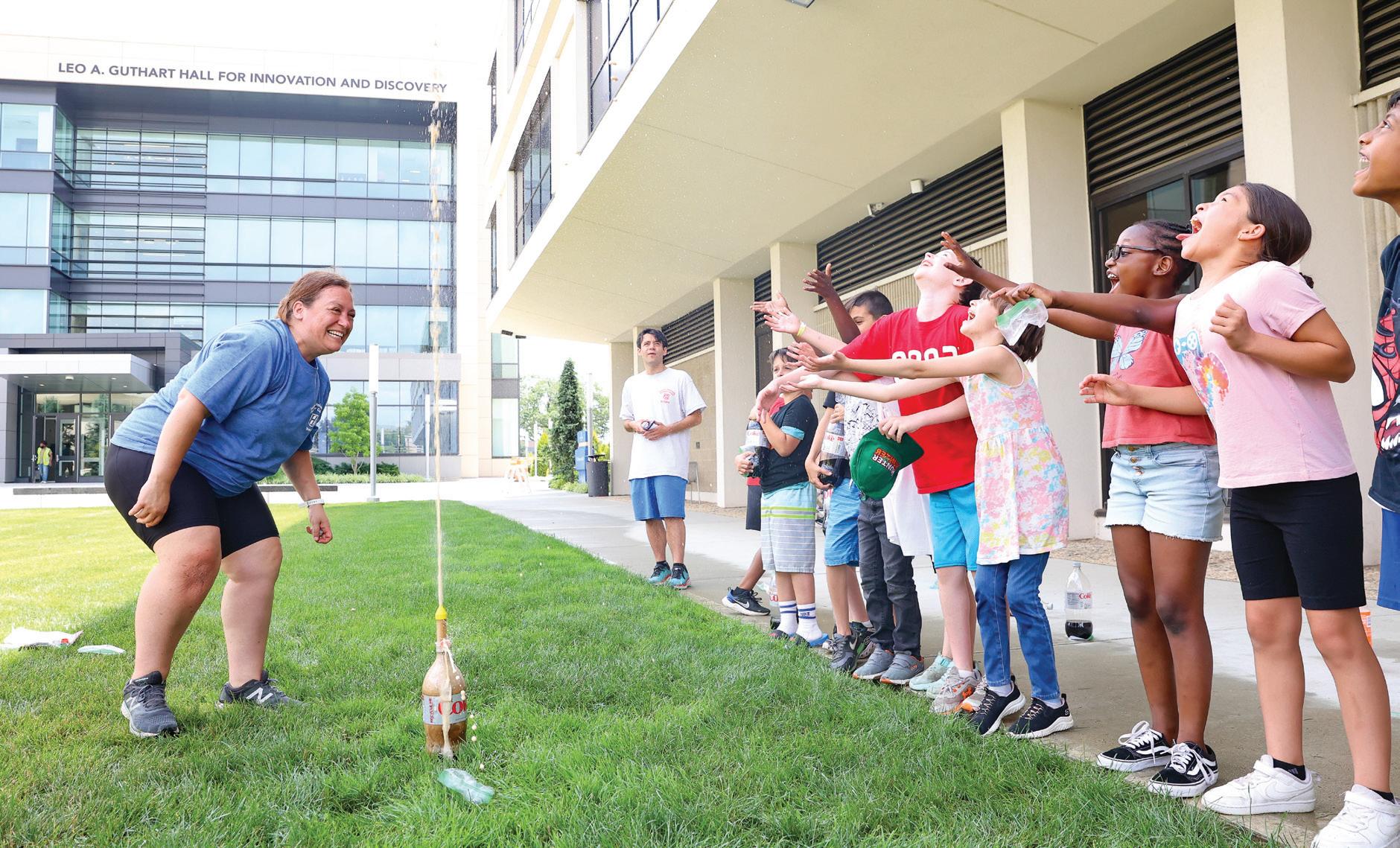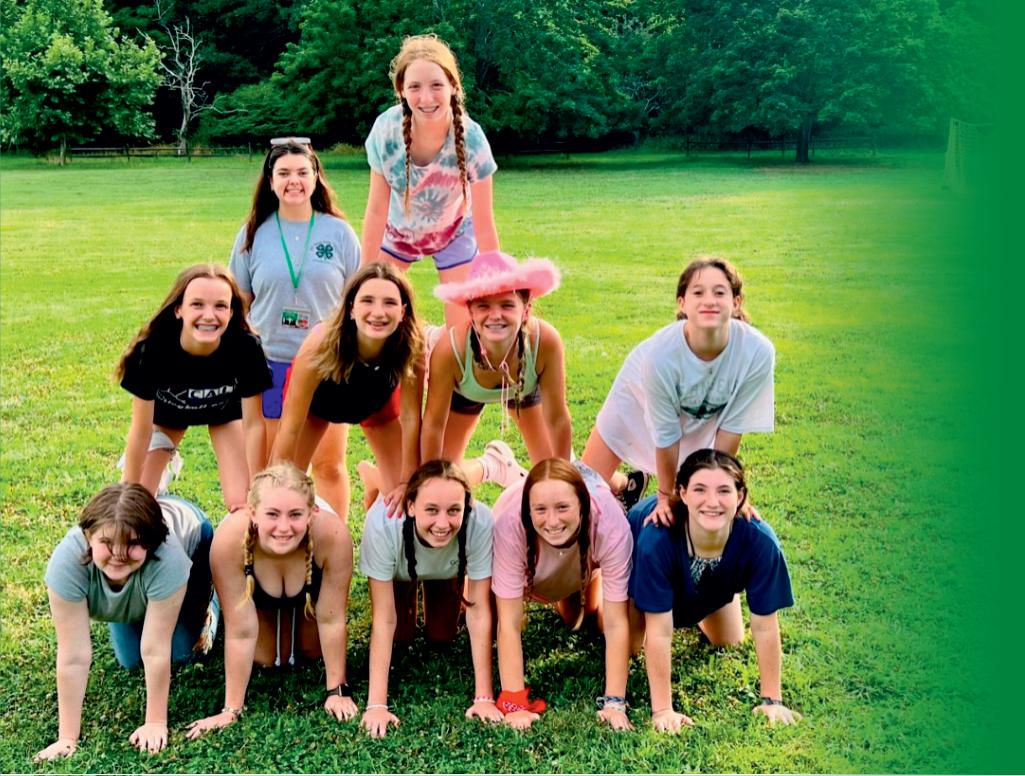














with a focus on programs and activities






May
16, 2024
It’s a whirlwind for your family after school: Your kids need to have a snack, keep up with their activities, complete their homework on and on it goes. All the while academics are the priority. So how do you fit tutoring into a busy household without distracting your struggling student, or making them feel left out of all the fun?
Even when tutoring is necessary, learning sessions can be a tall order for kids who are already over-programmed and overtired.
Building Skills
One of the biggest benefits of at-home tutoring is giving your student a chance to interact one-on-one with a certified educator. Even young children who need more practice developing basic skills, like problem-solving, vocabulary, and working with numbers, may benefit from working with a tutor.
Of course, hiring a tutor isn’t always about helping your child get ahead. Tutoring also provides students with the extra help they need to complete schoolwork, address a learning disorder, or master content they struggle with. Depending on your child’s learning style, your tutor might use visual aids, audio clips, or art projects. They’ll need enough room and enough supplies to teach effectively.
During the hiring process, talk with your tutor about their plans for your child’s tutoring sessions. What kind of space do they need? Together, pick a quiet area in your home that you can dedicate solely to tutoring sessions. This could be the kitchen table, a study desk, or an out-of-the-way corner wherever there’s enough room with limited distractions.
When your child and their tutor have a place that’s all their own to sit down and get to work, it provides the structure and

stability for good learning. This routine carries over to every session and makes it easier for your tutor to develop a rapport with your student, so they can accomplish even more together.
Institute Quiet Hours
Have other children? Make sure they understand that the tutor and your student need time and space to work on their own. Establish this boundary early, so your kids all understand that tutoring time is important work time.
Tutoring time can also be good “quiet time” for the rest of your household. If true “quiet time” is a no-go at your house, try sending your other children outside or to a different part of the house to play.
Coordinate Breaks And Boundaries
Most young children can only study for 20 to 30 minutes at
a time before they need to move on to another activity or take a break. Teens and tweens can likely study for longer periods of time, from 30 to 40 minutes, before they need to get up and stretch or rest their eyes.
Remember: You’re paying a certified educator for their expertise in subject matter, as well as their knowledge about what makes a successful learning environment. Work collaboratively with your tutor to establish boundaries and rewards that feel appropriate for your student’s needs, your comfort level as a parent, and the tutor’s needs as an educator.
For most tutors and students it’s also best if parents make themselves scarce during tutoring sessions. If you hang around during a session, it could make it more difficult for your student to focus even if they’re on break. Encourage your student to follow the rules and have a good time then make your exit!
Emphasize Family Time
Even though tutoring can be fun and engaging, it’s still extra work for your young student. That can make kids feel left out, especially when their brothers and sisters get to spend the time playing, attending after-school clubs, or hanging out with friends.
In order to make your tutored child feel included, make sure to emphasize family time after the tutoring session is over. Whether you all sit down to dinner together, watch a movie, or take a walk around the block before it gets dark, family time helps your student transition from a long workday back into being a kid.
Every family member has individual responsibilities, interests, hobbies, and activities they do on their own. Helping your child see that tutoring is just one of the things they do makes it less isolating and more independent and confidence-building..
Photo: Children can benefit from having someone focused on them who can support and help them to understand and accept their own learning styles












Help your student achieve tutoring success
Extra help
KIDS, CAMp and SCHOOL — with a focus on prOgrAMS AnD ACtIvItIeS May 16, 2024 — KIDS, CAMP and SCHOOL — HERALD COMMUNITY NEWSPAPERS S-2 516-623-4550 W W W.TW I NOAKSD AYCAM P. C O M GEMINI TRAVEL PROGRAM 2024 • Theme Parks • Theater Experiences • DAY CAMP EXPERIENCE • 1018735 • Camping experiences for children ages 20 months to 13 year s • Barney program (20 – 30 months) a 1-to-1 camper/ counselor experience • Travel programs available for preteens and teens • Af ter-camp activities: athletic clubs, late night, parent visiting • Themed weekly events • Door-to-Door transpor tation with a bus counselor(excluding Barneys) • Before and Af ter care available • Hot and cold lunch options daily • Gluten-free and Kosher meals available at no extra cost • Fresh fruit and Ice cream/ices daily CAMP DAYS 2024 June 27thAugust 22nd. Closed July 4th & 5th. We are hiring in 2024 • Indoor Activity Parks • Optional Over Night AMAZING DAY TRIPS ALL OVER LONG ISLAND & NYC! • Counselors • Lifeguards • Specialists • Sport Staff

So many choices, so much fun
If camp is in your family’s summer plans, now’s the time to get started
Although we are still a while off from the warm weather, it’s never too early to being thinking about summer camp. Since the most popular camps typically fill their rosters long before the first signs of spring, the earlier you begin the process, the more options your family will have available.
When choosing a camp or summer program, reputation and word of mouth are meaningful resources; however, a terrific match for one child and family might not be the best match for your child or family. The best advice is to think about your child’s interests and temperament, and make a list of camp features that are most important to your family and child.
Staff: The staff will play a crucial role in how much your child enjoys himself over the summer. A qualified staff is adept at making all children feel welcome, and will be experienced in making everyone’s time at camp as enjoyable as possible.
When connecting with camps, ask about staff and how the staff is assembled. What education and training is required of the staff? Does the camp run criminal background checks on its staff? A good staff will be trained in first aid and have some type of background in child counseling or education. Camps that simply hire recommends that 80 percent of a camp’s staff should be 18 or older.
Camp goals: Camps can differ greatly with what they hope to offer a child. Camps can focus on religion, sports, music, recreation, or a host of other interests. If you’re looking for a sports camp, ask about affiliations with any local colleges or professional teams. If it’s a musical camp, ask about what your child can expect to learn from staff.
It’s also important to determine the general temperament of a camp. Does the camp foster a laid back or
more competitive environment? This can be a big help in choosing the right camp for your child. For example, a child who isn’t very competitive likely will not enjoy a camp where competition is heavily emphasized, whereas a child who is competitive might not get much out of a camp that is more recreational.
Daily schedule: While some camps might be specialized, most parents send their children to recreational camps that they hope offer their kids a well-rounded experience. Ask to see the schedule from a typical day, and ask about how flexible that schedule is. Will kids be able to choose from different activities each day, or is every day regimented? Remember, kids will be spending their summer vacations at camp, and for many kids camp is an opportunity to relax and spend some time doing what they want. Camps that feature strict schedules might not be the best fit.
Referrals: Chances are some of your child’s classmates attend camp in the summer. Ask around and seek some advice on what are the top options. If you’re lucky, you might even be able to send your child to a summer camp that some of his classmates also attend, which should make it easier for your child to adapt to camp, especially if it’s a first summer away from home.
If you can’t find any personal referrals, ask a camp for a list of references. These references shouldn’t weight too heavily in your decision, as a camp director is obviously not going to give you names of parents whose children didn’t have a good time. But the parents should be able to provide an accurate portrayal of how the camp conducts itself and how your child might fare should he attend that camp.

Summer adventures
Being away from home builds self-esteem, independence
One of the many joys of parenthood is helping children navigate new waters. And, while often these situations are met with hesitation, slight anxiety or in the case of some first-time campers, homesickness it is these moments that develop the 21st century skills needed in adulthood. New situations, such as going away to camp, serve as teachers in life’s classroom developing leadership, self-esteem, teamwork, independence, and problem-solving. It’s important, even critical, for parents to help children overcome any feelings of hesitation in order to help them grow. Take camp, for example. From a child’s perspective, camp is fun, fun, fun! Parents know that camp provides immeasurable growth opportunities, and is a vital part of childhood. As the day approaches, even the most excited campers sometimes get nervous about being away from home.
“Homesickness is completely normal,”says psychologist Michael Thompson. “If a child loves his or her parents and has a good home, why wouldn’t he or she feel some longing for mom, for dad, for the dog, or for home cooking?”
Letting Go
It is up to parents, then, to help ease the transition to camp, and help their children grow from the experience. Help alleviate anxiety and get a jumpstart on life’s lessons with some advice from camp professionals.
<checkmark>Encourage independence throughout the year. Practice separations, such as sleepovers at a friend’s house, can simulate the camp environment.
√ Involve children in the process of preparing for camp. The more they own the decision, the more comfortable they will feel being at camp.
√ Make sure to understand the camp’s philosophy on how issues, such as homesickness, are addressed. Talk candidly with the camp director to understand his/her perspective on the adjustment to camp life.
√ Discuss what to expect at camp before leaving for camp. Consider role-playing anticipated situations, such as using a flashlight to find the bathroom.
Overcoming Homesickness
For a child who’s going to be away for a while, send a note or care package. Acknowledge missing the child, in a positive way. For example, saying “I am going to miss you, but I know that you will have a good time at camp,” lets the camper know that families are thinking about them, but confident in their ability to adapt to camp.
Above all, avoid bribing behaviors. Families send the wrong message when they link a successful stay at camp to a material object. Families should focus on the real rewards like newfound confidence and independence. And don’t plan an exit strategy. If a “rescue call” comes from the child, offer calm reassurance and put the time frame into perspective.
While most incidents of homesickness pass quickly, parents know their child best. If parents have concerns (for example, the child is not eating or sleeping, or appears overly anxious), they should immediately talk to their camp director. Camp staff are trained to identify and ease homesickness, and are a valuable resource for parents as well as campers.
S-3 May 16, 2024 — KIDS, CAMP and SCHOOL — HERALD COMMUNITY NEWSPAPERS KIDS, CAMp and SCHOOL — with a focus on prOgrAMS AnD ACtIvItIeS
Photo: More than s’mores and sing-alongs: Camps offer summer adventures that result in lifelong memories and frienship. Photo: Camp is a chance for kids to disconnect, make discoveries and meet
new people.






Fitting it all in Managing
the after-school activities juggle
For many families, the morning rush isn’t the most chaotic time of the day. Instead, the sanitybuster is that long stretch from the time school lets out until the final activity ends and everyone is home.
Surviving the afternoon activities juggle is all about planning and time management and it’s also an opportune time to teach kids some valuable skills.
“The opportunity with activities is it’s a great time for kids to learn time management,” says Carolyn Dalgliesh, a professional organizer who specializes in helping kids who are anxious or distracted.“It’s a skill that will help them throughout their lives.”
Without preparation, the activities crunch can get kids and parents on a quick path to burnout and exhaustion.
Consider these tips from the experts for making your child’s after-school activities a fun and rewarding part of childhood and for teaching your child the skill of time management.
Choose the right activities. There is no need for everyone to run ragged getting to volleyball practice if your child no longer enjoys it.
“We talk about mindful choices,” Dalgliesh says. “You want your child to get value out of any activity, whether it’s a great social outlet or a chance to run off a lot of energy.”
Consider timing. If you’re lucky enough to have choices in times, choose wisely. “Think about how well your child does with transitions,” Dalgliesh says. “For some kids, coming home triggers wind-down time, [so] parents may want to go to the library after school to do homework instead of stopping by the house.”
Honor the family meeting. There is a central principle when it comes to family time management: Everyone must get together once a week, with calendars in hand, to plan out the next week.
Figure out how each kid will get to and from each activity, and make plans for meals and snacks. When doing the planning, try to carve out at least one night when the family can have dinner together. Or, suggests Grey, dole out allowance and lunch money at the end of the meeting.

count. Try an audiobook, choosing a story everyone in the family can enjoy. Dalgliesh plays a conversation game with her children. She has a set of cards with prompts such as, “What is the worst meal you ever had in a restaurant?” or “What is your favorite vacation memory?”“It’s about finding those moments to connect,” she says. Be flexible. Even the most carefully made plans can be rendered useless by a thunderstorm that cancels soccer practice, a sick child, or an unexpected work disaster.
“Your school district has a multitude of resources to which your child may be entitled. I can partner with you to design an effective, long-term plan to ensure that your child gets all that he or she requires to achieve
We attend all meetings about your child and assist parents whose children attend private or charter schools, obtain services from their home district.
Office: (516)791-1324
Cell: (516)445-1705
Helene@Agatstein.com Website: schoolingadvocate.com
Maintain a family calendar. Each family member needs his or her own week-at-a-glance calendar, and you also need a family calendar. Yes, that’s a lot of calendars, but it will help ensure all activities are well-planned.
Get the activity bags ready. Get your kids in the habit of packing their activity bags on Sunday night. Designate a place for them to hang or store their bags. For activities requiring a lot of gear, use a checklist to make sure nothing gets left behind.
Embrace meal planning. It’s important to plan simple, consistent meals, especially if you’re a busy family with a lot of activities. For example, kids love theme dinners such as “Taco Tuesday,” and can help with preparation and assembly. Make it portable. Keep healthy drinks and snacks in a car cooler. After all, “we’re a portable society,” Dalgliesh says. In addition to food, keep an “activities bin” for kids to rummage through while hanging out at big brother’s karate practice but only then.
Make car time special. If you spend a lot of time driving to and from activities, make that time
Empower your kids. Give your kids as much control over their own planning and scheduling as they can handle. Different kids need different tools. Especially as kids get older, they need to own their organization system. Some kids like to do everything electronically, others like pretty paper notebooks and calendars. Some kids like to use the latest apps and color-coded pens to stay organized, and others take a minimalist approach, scribbling basic information only.
Electronics and computers. Our devices are our lifelines, which became even more so as a result of the pandemic, and for many it’s a hard habit to break. It’s easy to rely on electronic games and social media during the activities crunch, especially for siblings who are waiting or when you arrive at an activity early. But set limits and use electronics as a reward for good behavior, with exceptions to those limits when the tech tool is needed for a school project.
By teaching your kids the skills they need to manage their life inside and outside of school, you’ll equip them for school, college, and beyond. You’ll also create a family life that allows all members the opportunity to reach their potential.
Photo: Keeping kids busy after school is a good thing, but participating in many activities without advance planning is inviting miscommunication, forgotten homework, and cranky families. Instead, enlist your kids’ efforts each week in planning their time.
May 16, 2024 — KIDS, CAMP and SCHOOL — HERALD COMMUNITY NEWSPAPERS S-4 1253810 1228316
success.” Dr. Helene H. Agatstein
academic
Educational Consultant, Inc.
a focus on prOgrAMS AnD ACtIvItIeS
KIDS, CAMp and SCHOOL — with



S-5 May 16, 2024 — KIDS, CAMP and SCHOOL — HERALD COMMUNITY NEWSPAPERS GET BACK ON TRACK THIS SUMMER! ©2020 Hunt ngton Mark, LLC Independent y Owned and Operated SAT and Advanced P acement (AP) are registered trademarks of the Co lege Board PSAT/NMSQT s a registered trademark of the Col ege Board and the Nat onal Merit Scholarsh p Corporation ACT is a reg stered trademark of ACT, Inc None of these entities were nvo ved in the production of, and do not endorse, this program *Offer valid on Academ c Eva uat on Not val d with any other offers HLC3904 1 TUTORING • Reading • Writing • Spelling •Pho nic s • Math K- 8 , A lge bra, G eomet r y, Tr igonome tr y, C alculus • Sciences • Study Sk ills • Subjec t Specific • Homework Help • ADHD Program TEST PREP www.HuntingtonHelps.com $ SAVE 50 ON AN ACADEMIC EVALUATION* (VALUED AT $195) • Regents • SAT/ACT • PSAT/NMSQT • HSPT • Advanced Placement (AP) • ISEE • SSAT 516-568-0521 639 Sunrise Highway, Phillips Plaza, Lynbrook TUTORING IN-CENTER 1 2571 86 Champion Martial Arts Merrick 391 Merrick Ave, Merrick, NY, 11566 cmamerrick@gmail.com 1256669 1256669 CHAMPIONS MARTIAL ARTS_QV.indd 1 5/10/24 11:55 AM JOIN US FOR SUMMER SWIM FUN! Saf-T-Swim Oceanside 3194 Lawson Blvd, Oceanside, NY 11572 (516) 442-2825 Saf-T-Swim Bellmore 2050 Bellmore Ave, Bellmore, NY 11710 (516) 557-2114 1257167








Sign up today and get 3 months FREE! Use promo code: GUIDE24. Go to liherald.com/subscribe Select the LONG BEACH HERALD from the list and enter promo code: scan for faster service GUIDE24 to get 3 months FREE! - Questions? Call us at 516-569-4000 x7 Hurry, this limited time offer ends on 9/30/24 Note: Offer good on our auto pay option only. Your credit card will be automatically charged $9.75 after the 3 FREE months and every quarter after that. LOVE YOUR HOMETOWN: for news that really hits HOME! Subscribe HEARTBEAT of YOUR TOWN to the May 16, 2024 — KIDS, CAMP and SCHOOL — HERALD COMMUNITY NEWSPAPERS S-6
It may feel far away right now but you’re going to need to start thinking about the endless days of summer sooner rather than later. Your child’s last day of school may still be months away, but as we all long for the easy, breezy days of summer you know that your time will not be as easy or breezy if you don’t find the right summer activities for your child. When shopping for a kids’ day camp, there are a few key things to look for to ensure that you’re comfortable with the program and that your preschooler swill be a happy camper.
The camp should stress fun, not learning. As with preschool, your child’s earliest experiences with camp shouldn’t be about academics. If a brochure promises to jumpstart reading or prep your toddler for math, give it an “F” and move on to other options. (And rest assured, even if all your child does during the day is kick a ball, dribble water in a kiddie pool, and dabble in finger paint, she’ll still be learning plenty.)
A kids’ day camp should mix it up. While older kids with special interests may benefit from specific programs like sports or musicaltheater camps, little ones thrive on exposure to different activities. Your preschooler will have the most fun if her day camp for kids includes a variety of endeavors arts and crafts, supervised games, story time, cooking, swimming, or water play, etc.
The camp should be in a safe, well-main-

tained location. In other words, a day camp for kids should provide a clean and neat indoor space that is free of potential hazards; and if there’s a playground, the equipment must be up-to-date and the surface soft.


The camp shouldn’t be overstructured. This is a kids’ day camp, not boot camp. Besides lots of different things to do, there should also be plenty of (supervised) free time.
It should have designated downtime. If your
sweetie is still napping, you’ll want to make sure that she’s able to catch her usual siesta at summer camp. And even if she’s over the nap thing, a quiet rest period lets her recharge her battery for more fun in the afternoon.
Staff should take it outside. One benefit of day camp for kids is fun in the sun. Ask to see a typical day’s schedule to make sure that your tot will be spending plenty of time outdoors
The camp should have an ideal kid-tocounselor ratio. Make sure there’s enough supervision, especially if your child will be doing water activities or spending a lot of time on playground equipment. The American Academy of Pediatrics doesn’t have specific guidelines for day camps, but for daycare and preschools it recommends a child-to-staff ratio of 5:1 for toddlers 31 to 35 months old, 7:1 for three-yearolds, and 8:1 for four- and five-year-olds.
Staff should be hired with care. You may not need an advanced degree to be an effective camp counselor, but you do need to know how to deal with kids (and their many moods), cope with minor scrapes, and have CPR training. The camp should also do a screening process to make sure their employees have a clean criminal record (don’t be afraid to ask about this).
Photo: When preparing to select a camp for your child, take a close look at the camp’s web site or brochure, do a site visit ahead of time, and ask the right questions.


Introducing the younger ones to camp Local day camps that can keep your child occupied and happy all summer long.
KIDS, CAMp and SCHOOL — with a focus on prOgrAMS AnD ACtIvItIeS S-7 May 16, 2024 — KIDS, CAMP and SCHOOL — HERALD COMMUNITY NEWSPAPERS AN AMAZING SUMMER CAMP EXPERIENCE STARTS @HOFSTRA It’s never too early to plan for summer. Hofstra Summer Camps is open for registration! A favorite of Long Island families for 40 years, Hofstra Summer Camps provides campers in grades K through 12 an exciting opportunity to explore
passions, learn new skills, or become better athletes in any of our 50+ camps. Campers benefit from use of Hofstra’s state-of-the-art facilities, and our included lunch and transportation options
us
parents. Learn more about Hofstra Summer Camps at Hofstra.edu/camp Ad_HofSummerCamp2024_General_Herald.indd 1 5/10/24 9:28 AM 1256609
their
make
the preferred choice for
Naomi Chaim Watman M.D., F.A.A.P



• DrawiNg a ND PaiNtiNg • CartooN a rtS
• teeN Clay/Pottery • teeN CartooN a rtS
• teeN StuDio a rt • Claywork S

2024 JUNIOR SUMMER CAMP

A natural resource used to create metals.
A natural resource used to create metals.
A fossil fuel used to propel cars and other vehicles.
A fossil fuel used for heating and generating electricity.

We get milk, eggs and meat from them A fossil fuel used for heating and generating electricity.
A resource used to provide the structural support to plants.
This resources gives us fruits and vegetables
This resources gives us fruits and vegetables
A resource that gives us heat, light and vitamin D.
We get milk, eggs and meat from them.
A resource that we use to drink and wash things
We use this natural resource to breathe.
A resource that gives us wood to make paper and furniture We use this natural resource to
A fossil fuel used to propel cars and other vehicles.
A resource used to provide the structural support to plants.
A resource that gives us heat, light and vitamin D.
A resource that we use to drink and wash things.
A resource that gives us wood to make paper and furniture.
May 16, 2024 — KIDS, CAMP and SCHOOL — HERALD COMMUNITY NEWSPAPERS S-8 1414 Jerusalem ave North Merrick,
Carefreetennis@gmail.com
NY 11566 516-489-9005
JULY 1st - AUGUST 16th FULL WEEK-FULL DAY 9AM-5PM - $795 FULL WEEK-HALF DAY 1-5PM - $425 SINGLE DAY RATE - $180 9AM- 12PM TENNIS, PICKLEBALL, BASKETBALL AND OTHER SPORTS/ACTIVITIES 12-1PM LUNCH, OFF COURT, ACTIVITIES AND SUPERVISED FREE PLAY 1-5PM TENNIS, PICKLEBALL, MATCH PLAY AND MORE! SCAN QR CODE FOR MORE INFORMATION 1256798 218 PETTIT AVE, BELLMORE NY 11710 • 516.679.7716 SOUTHSHOREARTCENTER.COM • SOUTHSHOREART2@GMAIL.COM 1255176 SOUTH SHORE ART CENTER ART WORKSHOPS FOR KIDS 2024 SUMMER CAMP 2024 SUMMER woRkShoPS Fee $210 per person. See our website for the nine different fun art, craft, and music week-long projects. Pick ’N Choose the week(s)
want.
per person.
you
Fee $120
1254935
& Adolescent Medicine 303 East Park Ave. Suite A Long Beach, NY 897-4600 Office Hours By Appointment Get
Schedule your checkupS now C R O S S W O R D P U Z Z L E
Pediatrics
healthy for camp!
breathe
1 2 3 4 5 6 7 8 9 10 I H A S I L A G T R E S T E A E W L S M L O N I L O A A I R U T N A S L T P N R S M I E L N U L R G












S-9 May 16, 2024 — KIDS, CAMP and SCHOOL — HERALD COMMUNITY NEWSPAPERS Shor t Stay Sleepaway & Day Camp Sessions Still Open! • Farm & Hor ticulture • Archery • High Ropes • Outdoor Skills • Performing Ar ts • Spor ts • Fishing • Nature & Ecology Weekly day and sleepaway sessions begin July 1st and run through August 24th. Go to to sign your www.dpf4hcamp.org child up for a single or multiple sessions. Discounts available through June 1st with code schoolisout. Dorothy P. Flint 4-H Camp, 3186 Sound Ave., Riverhead 516-832-2591 ext. 109 ● dpf4hcamp.org We're celebrating our 100th summer of safe, educational fun with a 3-day festival from August 31 – September 2. Join us at our campgrounds during the Labor Day weekend for activities, food and fun. Go to www.dpf4h100.com to learn more. 1256788 For boys & girls ages 8 -16 1253873
Wordsearch
SOUGHT THROUGH FURLOUGH PLOUGH
ROUGH THOUGH TROUGH THOROUGH TOUGH
THOUGHT DOUGH BOUGH FOUGHT COUGH
BROUGHT BOROUGH ALTHOUGH ENOUGH DROUGHT BOUGHT
May 16, 2024 — KIDS, CAMP and SCHOOL — HERALD COMMUNITY NEWSPAPERS S-10
H P H P U R H K H C F B G G T G Y G K Q G O O E U H U H U H J H U R S B O G G O O O G G O R O R N U R X H U H U R H U O E O B G O T G T O N G U D T U L J H L H H R H G C O R H R M Q A T P T H B U T H R O U G H I K T F T H G U O R D S B G D B O U G H T H G U O L P Q K C O U G H H G U O D
Outside the classroom
The day’s far from over once the school bell rings
Kids nowadays are certainly busier than ever before. The increasingly competitive nature of scholastic life combined with the increase of outside of classroom options available to kids means that kids today are much busier than their school-aged counterparts of yesteryear.
Can after-school programs give your children an academic boost? According to a recent study of after-school programs serving lowincome elementary and middle school students, the answer is yes. Students who regularly participated in after-school programs surpassed their peers in academic performance. They also exhibited notable improvements in work habits and behavior.
“These findings underscore the importance of high quality after-school programs and activities for both elementary and middle school youth,” explains Deborah Lowe Vandell, PhD, Chancellor’s Professor Emerita, University of California at Irvine’s Department of Education, and the study’s lead author.
It’s no surprise that after-school programs can do much more than keep your children occupied during the afternoon. In fact, afterschool activities can help them in a variety of ways. Children develop time-management skills, build self-esteem, and practice goal-setting. While it may be tough to squeeze in afterschool activities for your children, the benefits
are well worth the extra effort.
Time management and prioritizing. Extracurricular activities teach children how to manage their time and prioritize various tasks and commitments.
Exploring diverse interests. The school band, drama club, or any sport may be an activity your children are interested in joining. By allowing your children the opportunity to explore diverse interests, you give them the opportunity to discover what they are passionate about. Once your children find an activity that they enjoy, succeeding in the activity could ultimately build their confidence and self-esteem.
Making a contribution. Extracurricular activities allow your children to make a contribution to their school or community, which is an important step in preparing them for life outside of academics.
Building self-esteem. Mastering new skills can help create confident kids. By participating in after-school activities, they can build their self-esteem in a relaxed setting as their activities provide the opportunity to be successful in something that they are passionate about.
Setting goals. Participation in extracurricular activities and programs present opportunities for your children to develop their goalsetting skills. Most involve reaching or achiev-

ing a goal, whether it be the lead actor in the school play, winning the state championship or coming in first place in the science fair. As a result, these activities help encourage students to work toward achieving those goals, while having fun at the same time.
Teamwork. Sports teams, clubs and activities, like dancing and music, all require children to work together toward a common goal. By participating in these activities, your children develop the skills they need in order to successfully work with others. In addition, extracurricular activities let children to build rela-
tionships and socialize with peers who share their interests.
College applications. And, of course, afterschool activities look great on college applications. In addition to academic performance, colleges want a well-rounded student and look at what activities students are involved in outside of school as a way to fully understand each student.
Recent studies show a correlation between improved grades, behavior and work habits as a result of students’ involvement in after-school activities.


KIDS, CAMp and SCHOOL — with a focus on prOgrAMS AnD ACtIvItIeS S-11 May 16, 2024 — KIDS, CAMP and SCHOOL — HERALD COMMUNITY NEWSPAPERS
Photo:



















May 16, 2024 — KIDS, CAMP and SCHOOL — HERALD COMMUNITY NEWSPAPERS S-12 ESCAPOLOGY.COM USE CODE WHEN BOOKING: GROUPS OF 4 OR MORE Not valid with any other offer. Only valid for groups of four or more. Call to confirm eligibility. Offer expires 10/16/2024. CALL US! 516-730-8900 2723 Hempstead Tpke, Levittown, NY 11756 20% OFF LIHNEWS Perfect for Group Activities Private Rooms: Never Play with Strangers Challenges for Any Skill Level 60 Minutes of Unforgettable Fun! ALL-INCLUSIVE BIRTHDAY PACKAGES AVAILABLE FIVE-STAR IMMERSIVE ESCAPE ROOMS! 1256917




























































































